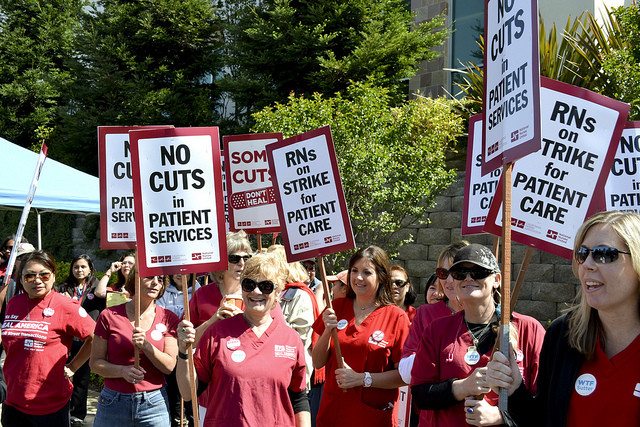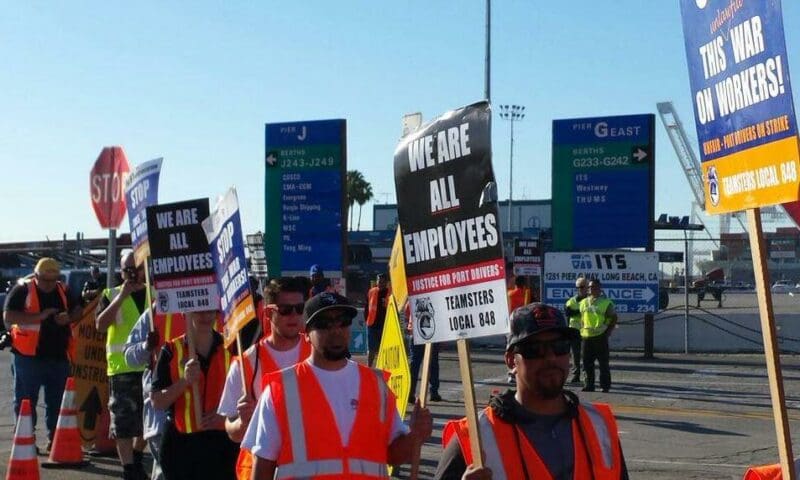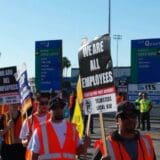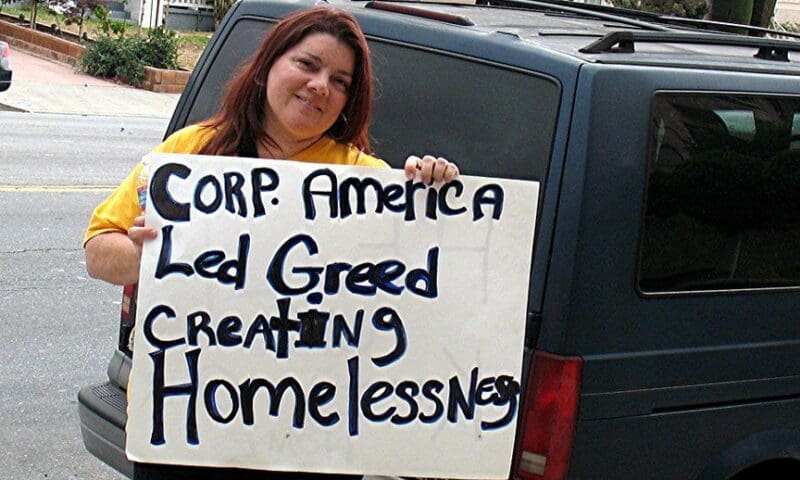Rupert Murdoch’s News Corporation has a digital education division called Amplify. A Bloomberg News article, “News Corp.’s $1 Billion Plan to Overhaul Education Is Riddled With Failures,” outlines the company’s efforts to cash in on education without positive results. Read more here.
Other news:


More than 5,000 registered nurses belonging to the California Nurses Association (CNA) are striking today at eight California hospitals, with a somewhat smaller number continuing the strikes Friday. The nurses are demanding that hospitals provide adequate staffing levels which are now, they claim, endangering patients. (Disclosure: CNA is a financial supporter of Capital & Main.)
Hospitals affected by the strike are: Los Angeles Medical Center (Kaiser Permanente); Providence Little Company of Mary Medical Center Torrance; Providence Saint John’s Health Center; Mills-Peninsula Health Services (Sutter); Sutter Auburn Faith Hospital; Sutter Roseville Medical Center; Sutter Santa Rosa Regional Hospital and Sutter Tracy Community Hospital.
Sue Robbins, a registered nurse who has worked at Sutter Roseville Medical Center for 14 years, says this is her first strike and it’s also the first time a strike has taken place at her hospital, located north of Sacramento.
Robbins says that a rehab center that served the community is gone and that Sutter’s management wants to eliminate “baby nurses” —
» Read more about: Nurses at Eight California Hospitals Strike to Demand Adequate Staffing »


On the last stop on their road trip through California, Maria Bustillos and Elizabeth Fladung discuss inequality and gentrification in San Francisco, heart of the tech industry and one of the most unequal cities in the country.
![]()
This podcast is an encore posting from our State of Inequality series.
Maria Bustillos is a journalist and critic living in Los Angeles.
Elizabeth Fladung is a Brooklyn-based, CalArts-trained photojournalist. Her work has appeared in The Nation, La Repubblica, The Fader and Wax Poetics Magazine.
» Read more about: Podcast: 'Disruptors' and Gentrification »


As the strike by a couple hundred harbor truck drivers enters its third day, work stoppages have spread to a Union Pacific rail yard located in Lincoln Heights, just east of downtown Los Angeles. A rally will be held there today, Wednesday, April 29, to protest the theft of the drivers’ wages by port hauling firms. It takes place 2:30-4 p.m. at the Union Pacific Railroad Trailer and Container Intermodal Facility, 1041 Richmond Street.
At the heart of the dispute is the continuing fight of short-haul drivers to be classified as company employees by the trucking firms they work for. Currently, most drivers are considered “independent contractors,” a job category that denies the drivers basic labor benefits and rights, while placing on them the costly burden of paying for the maintenance, fuel and insurance for their vehicles.
On Monday, drivers for Pacific 9 Transportation, Intermodal Bridge Transport,


Maria Bustillos and Elizabeth Fladung debrief their day reporting on inequality in Silicon Valley, including their experiences visiting with some groups and leaders helping local people left out of the tech boom.
![]()
This podcast is an encore posting from our State of Inequality series.
Maria Bustillos is a journalist and critic living in Los Angeles.
Elizabeth Fladung is a Brooklyn-based, CalArts-trained photojournalist. Her work has appeared in The Nation, La Repubblica, The Fader and Wax Poetics Magazine.
» Read more about: Podcast: Silicon Valley's Stark Contrasts »


For Catherine Green, home for the last three decades has been a comfortable apartment in the sprawling 43-unit Boulevard Villa near Crenshaw and Venice boulevards in Mid-City Los Angeles. Her alert gaze, energetic demeanor and perfect posture give no hint of a life that’s spanned 90 years. “I was one of the first people to move in here,” she says with a strained smile. “I’ve seen ’em come, and I’ve seen ’em go. This is my community, my village.”
Tanya Rhodes, a retired nurse, and her disabled daughter also call this place home, and have done so for the last 22 years. Louis Gates, a sturdy man with a steely glare, is a Vietnam vet who relocated here five years ago. Between nervous puffs on a cigarette, he expresses how happy he was when he moved in, and says sadly, “I thought this was going to be the last place I would move into.” If the winds of fortune do not change soon,
» Read more about: As L.A.'s Rents Rise: Crenshaw Tenants Battle Eviction »


The day after undergoing complicated surgery for pancreatic cancer, a friend’s 76-year-old-husband became combative and aggressive while being cared for in an Intensive Care Unit. He stood up, tore out his IV and nasal gastric tubes, and pushed the nurse who had come to get him to lie down. Eventually he had to be tied down to his bed with hand and foot restraints because he was kicking and thrashing about – even kicking his wife in the stomach. Not the type of scene we expect in an ICU.
For nurses these days, however, it seems that assaults and acts of violence have become part of the job. According to Christy McConville of the United Nurses Associations of California, workplace assaults are now being captured on video and shared on social media, creating a new awareness of the problem.The federal Bureau of Labor Statistics reports that violence against hospital workers is nearly five times greater than against average workers in all other employment categories combined – and it seems to be rising.
» Read more about: Urgent Care: Protecting Nurses Against Workplace Violence »


Maria Bustillos and Elizabeth Fladung discuss their experiences reporting on the pervasiveness of food deserts in the midst of California’s food production heartland.
![]()
This podcast is an encore posting from our State of Inequality series.
Maria Bustillos is a journalist and critic living in Los Angeles.
Elizabeth Fladung is a Brooklyn-based, CalArts-trained photojournalist. Her work has appeared in The Nation, La Repubblica, The Fader and Wax Poetics Magazine.
» Read more about: Going Down Highway 99 Feeling Sad (and Hungry) »


The power of art to effect fundamental social change will be on display in Los Angeles this week as a major 10-day “pop-up” exhibit of visual art and accompanying performances, and workshops opens Friday at a former movie theater in the city’s Baldwin Hills neighborhood.
Called Manifest: Justice, the event will showcase over 250 works from more than 150 artists, along with 30 community events that focus on race and criminal justice reform, inequality, healthy communities and immigration reform. It is being produced with support from the California Endowment and Amnesty International.
Drawn from across the country, the list of participants includes such marquee artist-activists as the godfather of guerilla poster caricaturists, Robbie Conal, and Obama ‘HOPE’ agit-provocateur Shepard Fairey, as well as a host of up-and-coming street muralists and wheatpaste artists, inducling the likes of Tatyana Fazlalizadeh, Favianna Rodriguez and Jesse Hazelip. Also on hand will be big-league gallerists such as collagist-photographer Lyle Ashton Harris and painter-sculptor Eric Fischl.
» Read more about: 'Manifest: Justice' Art Show Explores Inequality and Reform »


Maria Bustillos and Elizabeth Fladung discuss a day spent exploring inequality in Bakersfield, “The India of the U.S.,” and a very interesting person they met along the way.
This podcast is an encore posting from our State of Inequality series.
Maria Bustillos is a journalist and critic living in Los Angeles.
Elizabeth Fladung is a Brooklyn-based, CalArts-trained photojournalist. Her work has appeared in The Nation, La Repubblica, The Fader and Wax Poetics Magazine.
» Read more about: Podcast: Hope and Hopelessness in Bakersfield »